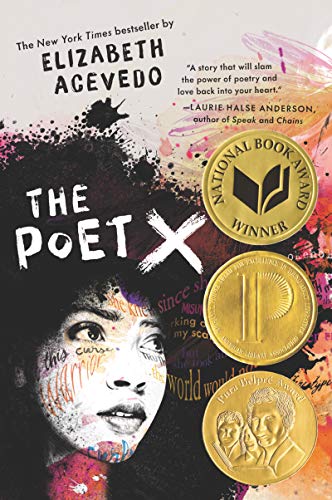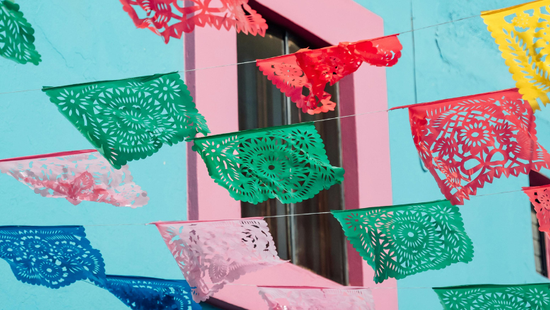September 15 to October 15 is National Hispanic Heritage Month in the United States (and the month of October is Latin American Heritage Month in Canada), a time to celebrate the rich contributions of Latino communities to our culture and society. From groundbreaking novels to powerful memoirs, Latino authors have profoundly shaped contemporary literature with their diverse voices and compelling storytelling.
Over the years, my two book clubs—an in-person group here in Denver and a now-virtual club with longtime friends—have explored many remarkable books by Latino authors. Today I'm sharing our selections along with our candid opinions about each one. Whether you loved them or found them challenging, these books sparked meaningful conversations and offered new perspectives that stayed with us long after we turned the final pages.
Consider adding one of these titles to your book club's reading list this Hispanic Heritage Month, or any time you're looking for your next great read!
What is Hispanic Heritage Month?
Hispanic Heritage Month is celebrated from September 15 to October 15 every year.
According to the National Museum of the American Latino, "the celebration begins on September 15 to coincide with the independence anniversaries of several Latin American countries, including Costa Rica, El Salvador, Guatemala, Honduras, and Nicaragua. Mexico and Chile celebrate their independence days on September 16 and September 18, respectively. Originally established as Hispanic Heritage Week in 1968 under President Lyndon Johnson, it was expanded to a month-long celebration in 1988 under President Ronald Reagan. This observance provides an opportunity to recognize the profound impact Hispanic and Latino Americans have had on American society, from art and literature to science, politics, and beyond, while celebrating the diversity within these communities and their ongoing contributions to the cultural fabric of the United States."

An Eye for An I by James Francisco Bonilla
The personal story of a blind Puerto Rican boy in New York who transcends a harrowing childhood to become a lifelong advocate for social justice.In An Eye for an I, James Francisco Bonilla recounts his journey from a blind Puerto Rican boy in New York to a powerful advocate for justice. Through trauma, racism, and resilience, he finds healing and purpose in community and activism. His memoir invites readers to reflect on identity, empathy, and the systems that shape opportunity and belonging. A deeply human story perfect for book club discussion—raising questions about forgiveness, advocacy, and how personal pain can fuel collective change.
Praise:
"Weaving together a poignant narrative made of personal vignettes, James Francisco Bonilla tells of obstacles overcome, insights gained, and lives transformed by his commitment to social justice and self-understanding. With its intersectional analysis of racism, mental illness, and disability, this memoir brings a fresh and inspiring voice to the world of social justice literature." —Beverly Daniel Tatum, author of Why Are All the Black Kids Sitting Together in the Cafeteria? And Other Conversations About Race
Books by Latino authors that my book clubs have read

The House of Broken Angels by Luis Alberto Urrea
A vibrant, multigenerational saga from the poet, novelist and essayist and author of The Hummingbird's Daughter that celebrates Mexican-American family bonds.
The de la Cruz family gathers in San Diego for the final birthday party of patriarch Big Angel, but it also turns into a funeral for his 100-year-old mother Mama America. Full of life, energy and humor, Urrea weaves together stories of love, loss, and legacy.
My book club loved how this book was both laugh-out-loud funny and quietly heartbreaking, and how Luis Urrea combines the universal messiness of complex family dynamics with the cultural specificity of a large first-generation Mexican-American clan.

The Poet X by Elizabeth Acevedo
Acevedo was raised in New York City by Dominican immigrant parents and entered her first poetry slam at the age of 14 before, ultimately becoming a National Poetry Slam Champion.
Her National Book Award-winning novel-in-verse draws heavily from her personal experiences and pulses with the rhythm of spoken word. Protagonist Xiomara's journey of self-discovery through poetry captures the complexity of being a young Afro-Latina in Harlem, navigating family expectations, faith, and first love.
This was a 10 star read for a good chunk of my book club but while I enjoyed the characters and the coming-of-age story I personally found it hard to get into the novel given its book-in-verse style. This is definitely one to consider listening to on audiobook!

Olga Dies Dreaming by Xochitl Gonzalez
A sharp, engaging debut that follows successful wedding planner Olga and her congressman brother Prieto as they navigate family expectations and political pressure in contemporary New York. When Hurricane María devastates Puerto Rico, buried family secrets emerge. Gonzalez, who has both Puerto Rican and Mexican heritage, writes about love, identity, ambition, and the complexities of Puerto Rican identity on the mainland.
My book club found this book highly entertaining to read and loved that it delved into so many different themes, though at times it felt like the author was trying to do too much (but we would absolutely read more by this author—cue Anita de Monte Laughs Last!)

Children of the Land by Marcelo Hernandez Castillo
Poet Marcelo Hernandez Castillo came to the United States with his family from Mexico at age 6. This 2020 memoir recounts the complicated relationships within his family as well as his conflicted relationship with the United States as an undocumented immigrant and DACA recipient.
His story is told in sometimes fleeting and transitory fragments—a lyrical style that was not for everyone, but that does a fantastic job conveying the emotional and psychological costs of bureaucracy, surveillance and lack of belonging inherent in the American immigration system

Fruit of the Drunken Tree by Ingrid Rojas Contreras
Contreras, who immigrated to the United States at the age of 14, used events from her childhood in 1990s Colombia during Pablo Escobar's reign of terror as a jumping off point for her debut novel. Told through the eyes of a seven-year-old girl living in a wealthy, gated community, and her family's impoverished 13-year-old maid who is the main breadwinner for her own family, this novel explores class distinctions and how violence ripples through ordinary lives.
My book club enjoyed this coming of age novel, though I think I gave it the highest rating out of any of us! While the book suffered from a few typical debut novel issues around tightness and pacing, I loved the reflective tone of the narrator, the heartfelt and moving story, and being transported to a different place and time (though one that will be somewhat familiar to viewers of the TV show Narcos).

Mexican Gothic by Silvia Moreno-Garcia
A dual pick for Hispanic Heritage Month and Halloween, this atmospheric horror novel transplants the familiar trappings of the Gothic tradition to 1950s Mexico. When socialite Noemí investigates her cousin's disturbing letter from a decaying English mansion, she uncovers family secrets.
This was another instance where we very much enjoyed the ride that this book took us on, while still having some nits to pick. The novel starts in a somewhat typical "haunted house" mode (deliciously creepy; Moreno-Garcia paints a vivid picture) and then veers sharply into the utterly bizarre (this is one of those books where I had to recount the plot in detail to my husband because I just could not believe where it went).

Cantoras by Caro de Robertis
Set against Uruguay's military dictatorship, this luminous novel follows five queer women who find freedom and love in an isolated beach hut. De Robertis, who is of Uruguayan descent and now calls California home, traces these women's loves and friendships starting in the 1970s and through the next 35 years as they drift apart and come together again, traveling back and forth from the capital city to their secret sanctuary.
Our book club was unanimous in our love for this novel. We were drawn in by the heartfelt emotions, the vivid window into another place and time, and the celebration of human resilience in the face of oppression.

The Brief Wondrous Life of Oscar Wao by Junot Díaz
This Pulitzer Prize-winning, 11th-best book of the 21st century, novel is centered on an overweight Domincan-American nerd obsessed with comic books. Díaz (who was subsequently embroiled in some controversy) blends pop culture, history, and heartbreak with a unique voice full of verve, cuss words and Spanglish.
This is not the book for everyone, but if you like it, you'll probably love it.
Have you read any of the same books as my clubs? What other books have you read by authors of Hispanic or Latino origin? Check out some of Bookclubs' recommendations in this blog post.

